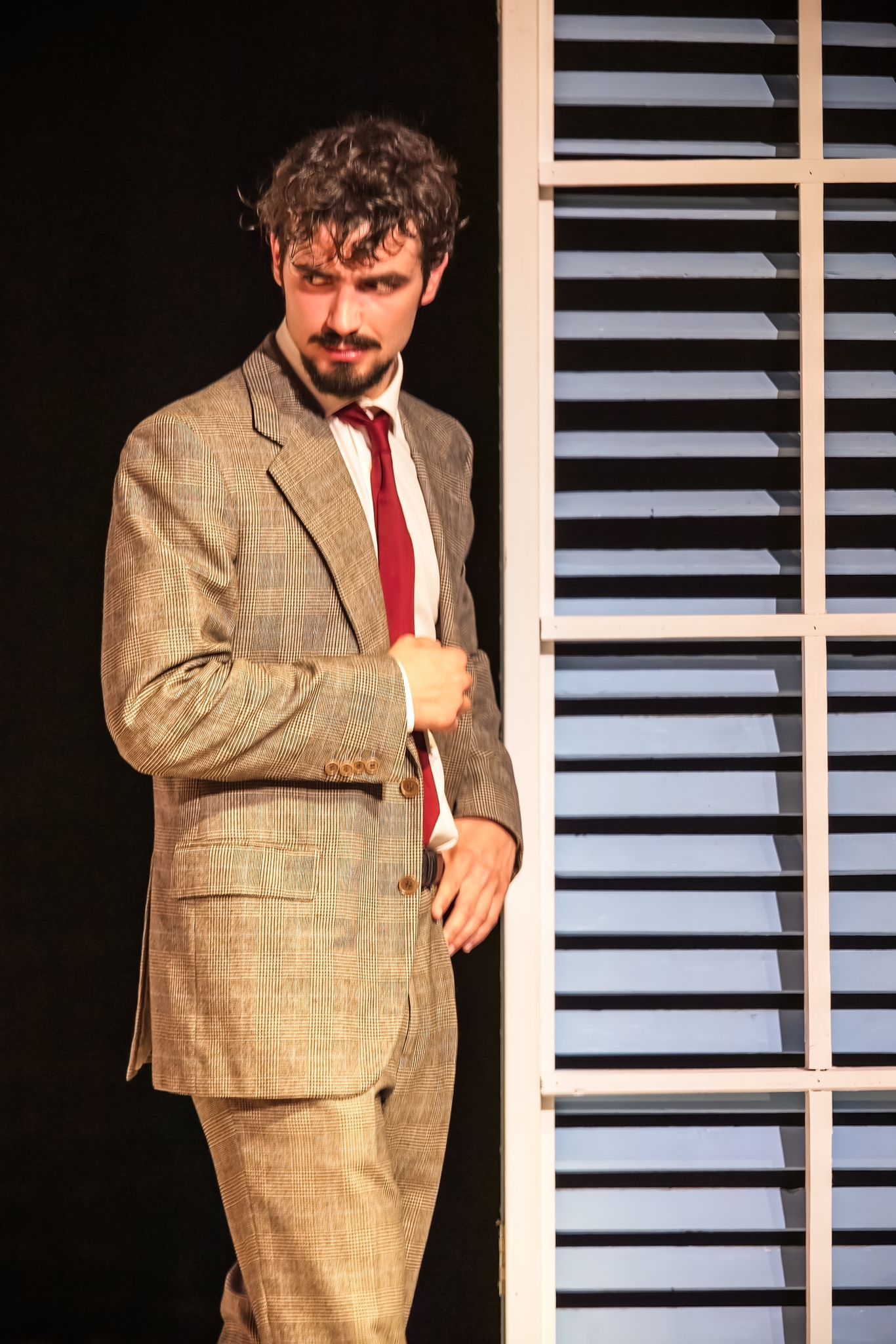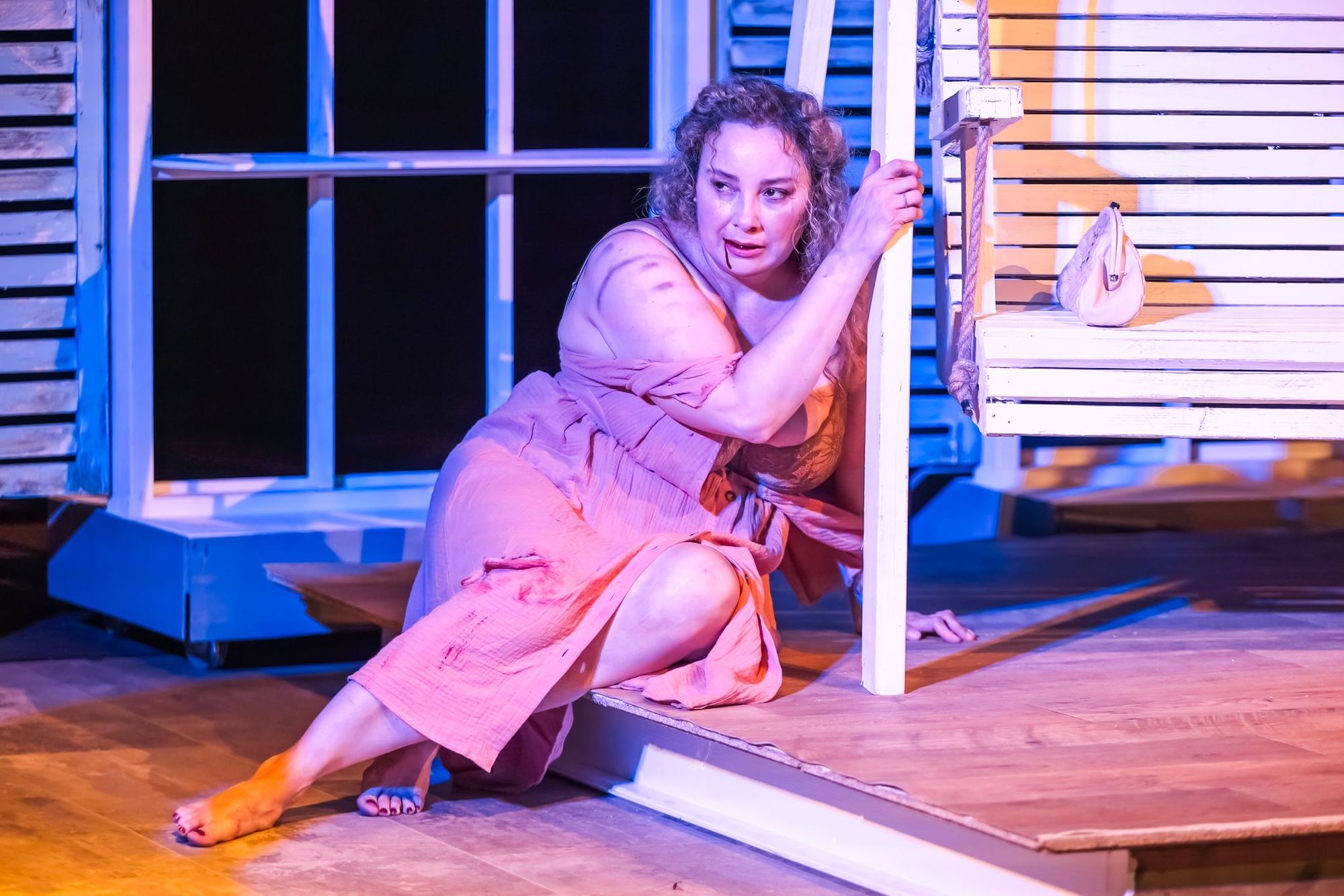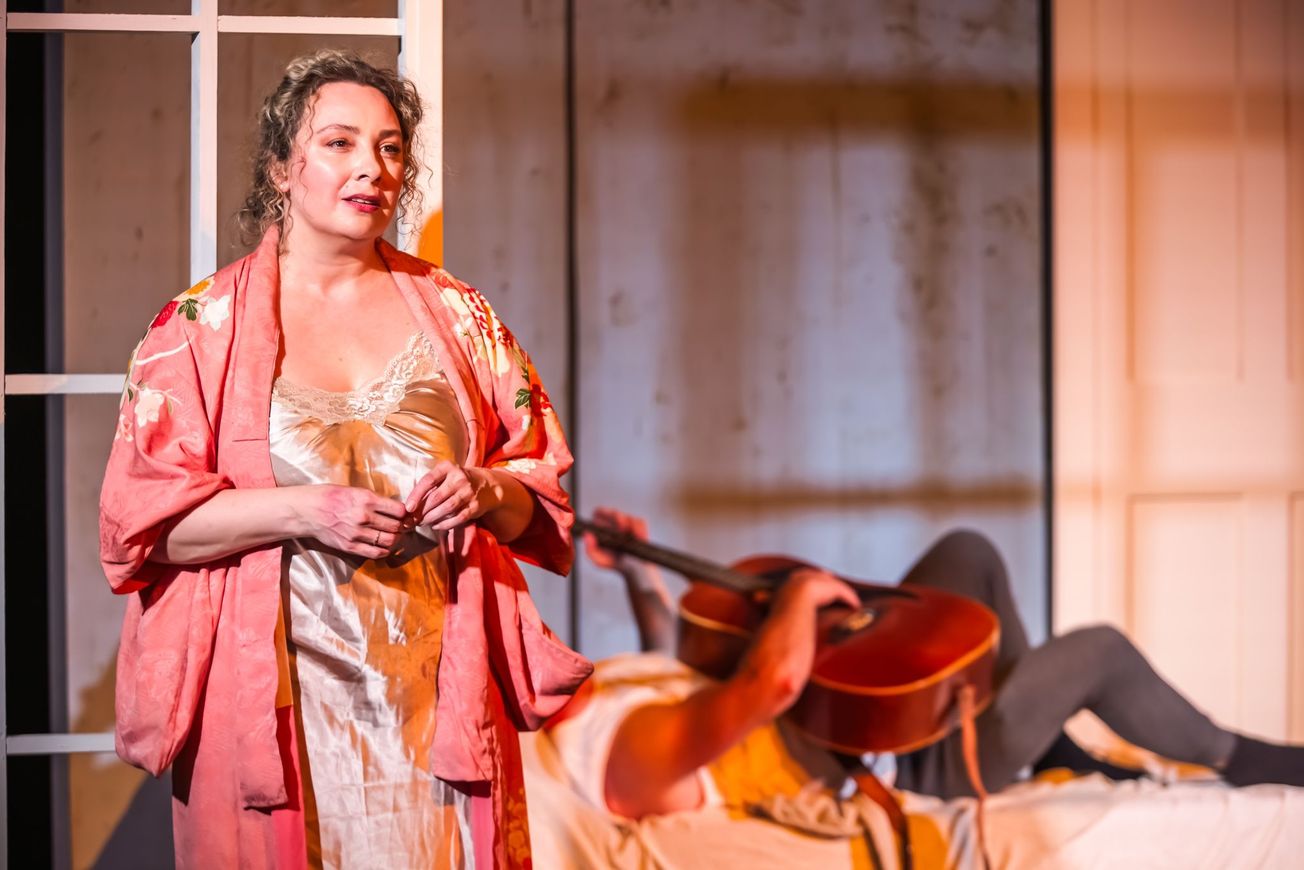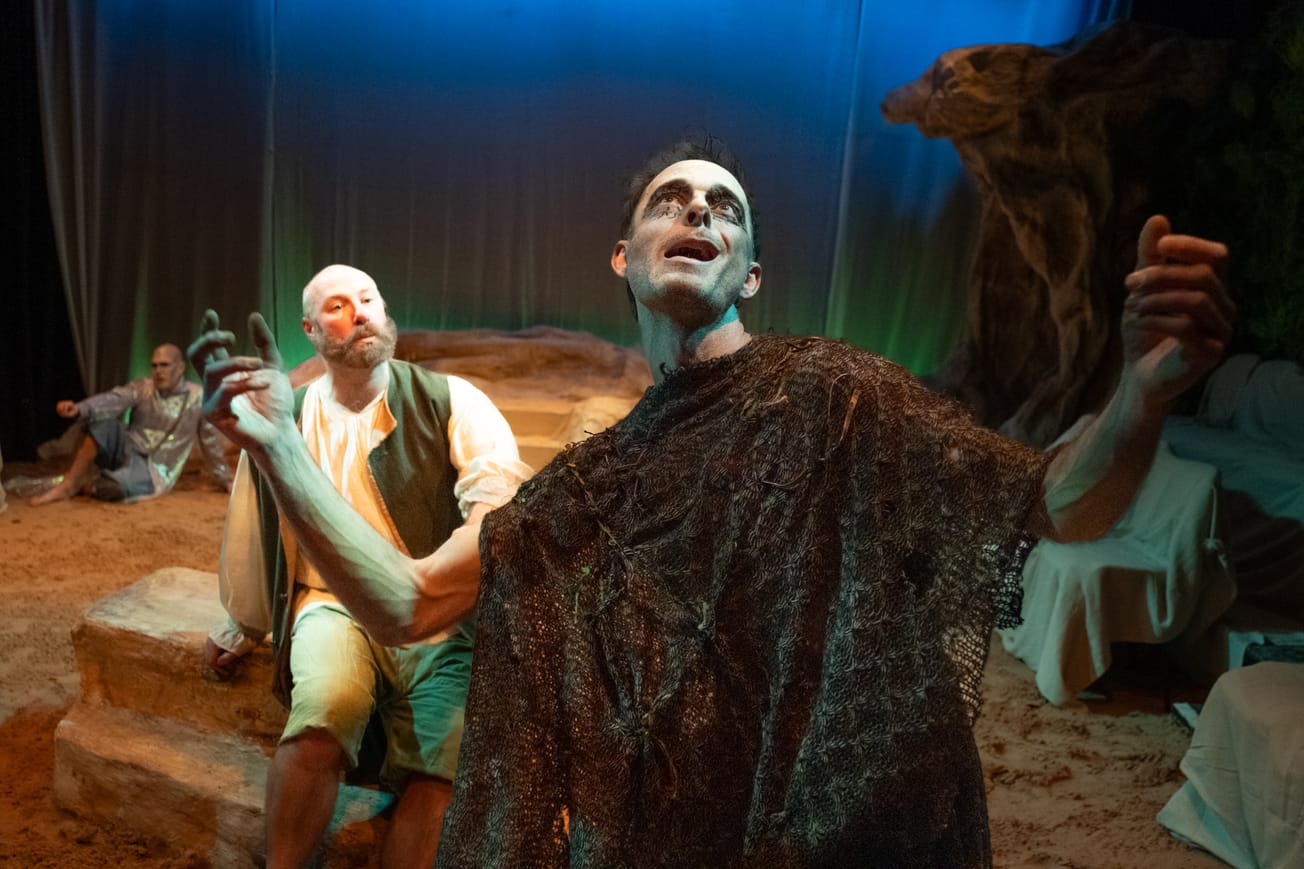Rating: ★★★★★
By Milan Perera, Deputy Editor
After their critically acclaimed production of ‘Because We Said We Would’ in December 2022, Fox and Hound theatre collective returns to Bristol for one night only at Redgrave Theatre. This time they tackle a literary titan, Tennessee Williams. Such a project is not without its fair share of pitfalls and drawbacks, but did they not rise up to the challenge with aplomb?
Fox and Hound Theatre Company, founded by the actors Helen Fox and Codge Crawford and the director Ellie Stevens, built up a reputation for exploring themes pertaining to human experience in a no holds barred approach. Their latest project chimes with their artistic credo and philosophy. The themes they lay bare may not be the fodder for a hand-holding romantic evening but an opportunity to be awakened from passivity and indifference.
The trio of plays consists of ‘Ivan’s Widow’, ‘Talk To Me Like The Rain and Let Me Listen’ and ‘27 Wagons Full of Cotton’. For this project they collaborate with the recent graduate of Bristol Old Vic Theatre School, Massimilliano Acerbi who has been an active presence in theatre, radio and film productions lately.

The proceeding for the evening is kicked off with ‘Ivan’s Widow’, featuring Helen Fox and Massimilliano Acerbi. This short play explores the predatory but seemingly professional conduct of a psychiatrist and a female patient who is coming in to terms with her husband’s death. Set in 1950s America, ‘Ivan’s Widow’ is a curious concoction of reality, fantasy, denial and defiance. The intense encounter between the psychiatrist and the patient is neatly executed by Fox and Acerbi without ever veering into overacting. The performance is both powerful and nuanced. Fox portrays the both malleable and formidable traits of the widow with careful attention to detail, while Acerbi captures the bursts of anger and flashes of confusion seamlessly.
The interval is preceded by ‘Talk to Me Like the Rain and Let Me Listen’ featuring Helen Fox and Codge Crawford. This compelling and emotionally charged one-act play delves deep into the complexities of human relationships and the inherent loneliness that often plagues us all.
Originally written in 1953, but set in the Depression era, this work remains relevant today as it was back then, offering a poignant exploration of love, despair, and the fragile nature of communication. The dialogues of Fox and Crawford are neatly executed with precision and finesse. The conversations between them are both sparse and intensely intimate, leaving ample room for interpretation and reflection. It is as if the rain outside the window mimics the tears and emotional turmoil of the characters within.

After the break, the audiences were treated to a rendition of ‘27 Wagons Full of Cotton’. This gem of a play has the ability to take the audience on a rollercoaster ride of desire, manipulation, and the power struggles that underpin intimate relationships. Set in the sweltering heat of a Mississippi summer, the play revolves around the turbulent relationship between Jake Meighan (Codge Crawford)and his wife, Flora (Helen Fox). The story unfolds in the wake of a fire that destroyed their cotton gin, leading to a dispute with their neighbouring plantation owner, Silva Vicarro (Massimilliano Acerbi). What follows is a gripping exploration of power dynamics, lust, and vulnerability.

The characters' interactions are fraught with hidden agendas and simmering resentments, and as the play progresses, these tensions escalate to a fever pitch. The exchanges between Vicarro and Jake Meighan as portrayed by Acerbi and Crawford are electrifying, serving as a compelling exploration of masculinity and dominance.
Flora, the tragic figure caught between these two powerful men, is portrayed with depth and vulnerability by Fox. Her mercurial rendition of Flora, the trajectory from subservience to self-realization is poignant, and her character serves as a stark commentary on the limited agency afforded to women in the Southern society of the time.

The sweltering heat (due to the late heatwave) inside Redgrave Theatre was a character itself, intensifying the sense of suffocation and stifling tension.
The masterful make up of Sam Fox and set and costume designer of Fiona McKeon add a layer of authenticity and immediacy to the production, while Ellie Stevens’ superb direction was ably assisted by Becks Granger.
Ellie Stevens, the acclaimed director is no stranger to Bristol where she completed her MA at the Bristol Vic Theatre School. Speaking to Epigram on adapting Tennessee Williams to a throughly modern audience, Stevens said:
‘My enduring fascination with the works of Tennessee Williams has been a driving force behind my choice. Williams' literary
prowess has always struck me as refreshingly contemporary. He possessed the uncanny ability to craft characters and narratives that retain their relevance and poignancy, even six or seven decades after their creation. My particular interest lies in feminist theatre, and through Williams' oeuvre, I sought to delve into the timeless struggles faced by women—a resonance with the challenges that persist in our modern world.’
The sustained applause at the curtain call is undoubtedly a seal of approval for this bold and brilliant piece of theatre.
Will you be attending Redgrave Theatre this autumn?









